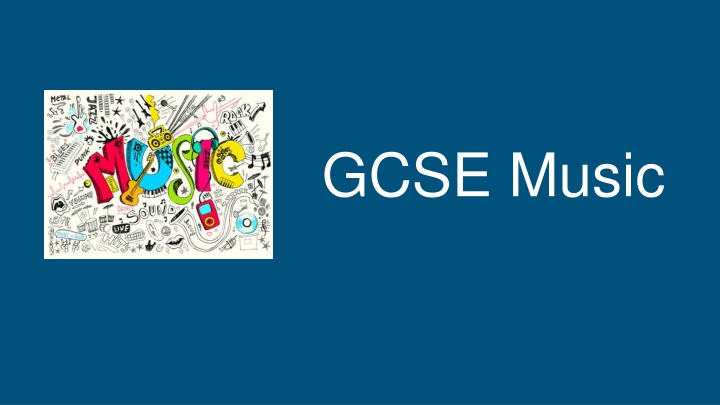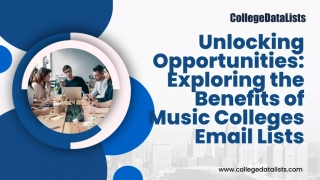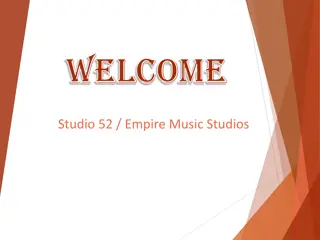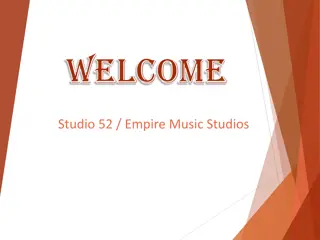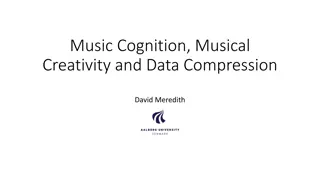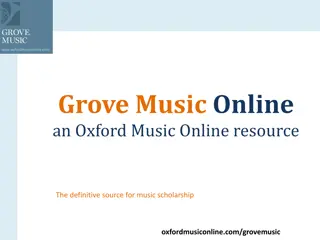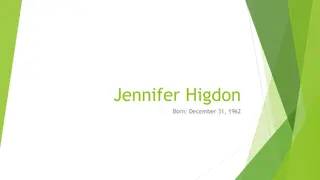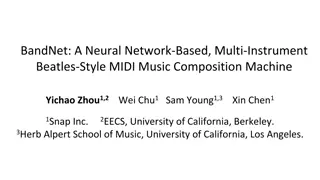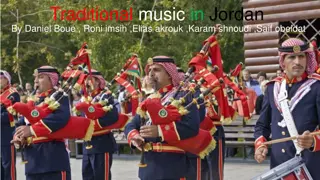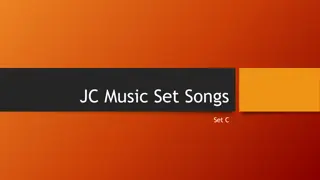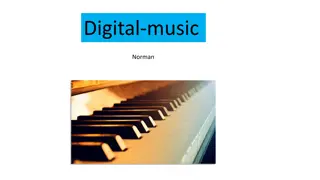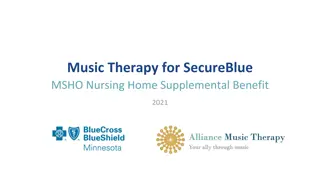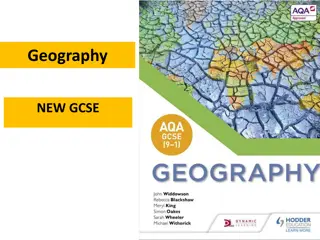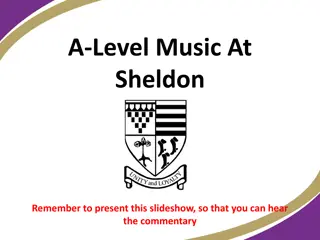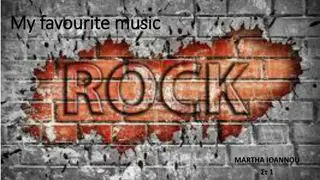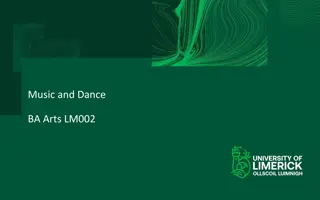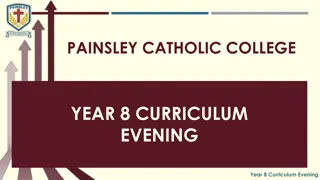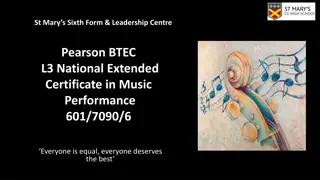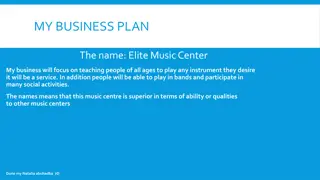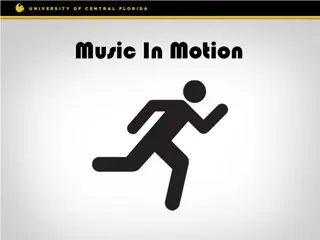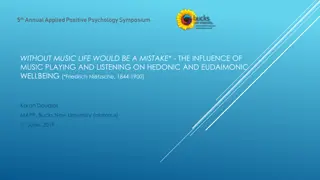Unlocking the World of GCSE Music: A Comprehensive Overview
Discover the exciting world of GCSE Music, where pupils delve into musical forms, devices, ensemble music, film music, and popular music. This course nurtures musical talents by focusing on performing, composing, and appraising activities. Students explore various genres, including Jazz, Blues, Musical Theatre, and more, while honing their skills in playing instruments and singing. Embrace the creativity and expression of music through practical assessments, written tasks, and engaging with musical technology to shape the soundscape of the future.
Download Presentation

Please find below an Image/Link to download the presentation.
The content on the website is provided AS IS for your information and personal use only. It may not be sold, licensed, or shared on other websites without obtaining consent from the author.If you encounter any issues during the download, it is possible that the publisher has removed the file from their server.
You are allowed to download the files provided on this website for personal or commercial use, subject to the condition that they are used lawfully. All files are the property of their respective owners.
The content on the website is provided AS IS for your information and personal use only. It may not be sold, licensed, or shared on other websites without obtaining consent from the author.
E N D
Presentation Transcript
Pupil view Exam Careers Video Content Staff In order to take Music at KS4, pupils must be able to play a musical instrument or sing to a good standard. You will also be expected to take part in at least one musical extra-curricular activity. The GCSE course is based on skills learned at Key Stage 3. It contains a range of musical activities in which pupils show a keen interest, some of which are from the area of film scores and rock and pop music. Pupils are encouraged to perform both in and out of school in whatever musical style interests them.
Pupil view Exam Careers Video Content Staff There are four areas of study within the GCSE Music course: 1. Musical Forms and Devices Forms and Devices are of fundamental importance in musical composition, and many of the common musical devices used by composers today have their origin in the Western Classical Tradition. Learners are encouraged to engage with a variety of music from the prescribed eras, through a range of performing, composing and appraising activities. 2. Music for Ensemble Through a study of diverse musical styles composed for ensemble, such as Jazz and Blues, Musical Theatre, Chamber Music and Welsh Folk Music, learners will consider how music is composed for small groups of instruments and voices.
Pupil view Exam Careers Video Content Staff 3. Film Music Through this area of study learners are encouraged to consider how music for film is created, developed and performed, and the impact this has on the audience. Learners will have the opportunity to compose and perform film music and are encouraged to use musical technology to create mood and atmosphere through engaging with the story of the film. 4. Popular Music Through this area of study learners are encouraged to explore the musical idioms associated with a variety of popular music, and they will have the opportunity to perform popular music as well as compose music associated with a popular music genre. Learners are also encouraged to use music technology, understanding the impact this has on the way music is developed and performed in popular music.
Exam Unit 1: Performing (35%) - Two performances; one as part of a group and the other a solo. - Marked in school and externally moderated by the WJEC. - A written task worth 5% based on one of the performed pieces.
Exam Unit 2: Composing (35%) - Compose two pieces; one in a style of their choice and the other to a brief set by the WJEC. - A written task worth 5% based on an evaluation of the set brief composition
Exam Unit 3: Appraising (30%) - Written exam testing pupils' skill in interpreting what they hear. - This is based on the four areas of study: 1. Musical Forms and Devices 2. Music for Ensemble 3. Film Music 4. Popular Music and the two set works as prescribed by the WJEC.
Staff Mrs Evans and Mr Thomas are the subject specialists for Music. All exam classes will be taught by both teachers.
Careers Performing Musical Theatre Backstage work (e.g. Sound Engineer) Radio and TV Teaching (classroom, peripatetic, private) Composing (e.g. Film score/ Television) Military Wind Bands (HM Forces) Recording Publishing Distribution and retail Agency and PR work Music journalism Management and marketing Instrument making and repair.
Pupil views Taking Music for GCSE is an excellent way to improve confidence and helps you find your own specialism. The teachers are extremely encouraging, supportive and helpful in our journey through GCSE. Beth Lewis, Year 11. Music lessons calm me down as well as build my confidence and let me believe in my own abilities. It s a good atmosphere with kind and understanding teachers. Jennifer Harvey, Year 10. In Music, we learn a lot of different techniques. We recently took part in a workshop where we wrote our own songs and learnt how to develop and record them using music technology. Cai Preston, Year 10. GCSE Music is a fun way to express myself with the support of teachers. I enjoy being in music lessons because I feel that I can perform in a comfortable environment. Rhianna Thompson, Year 10. Music helps build confidence. The GCSE is a good way to express yourself. The teachers are very supportive. Rebecca Hails, Year 10.
Video Here is footage that demonstrates the standard of performance that can be achieved in Music: https://www.youtube.com/watch?v=NBMINoYKo28&ab_channel=GarethThomas
